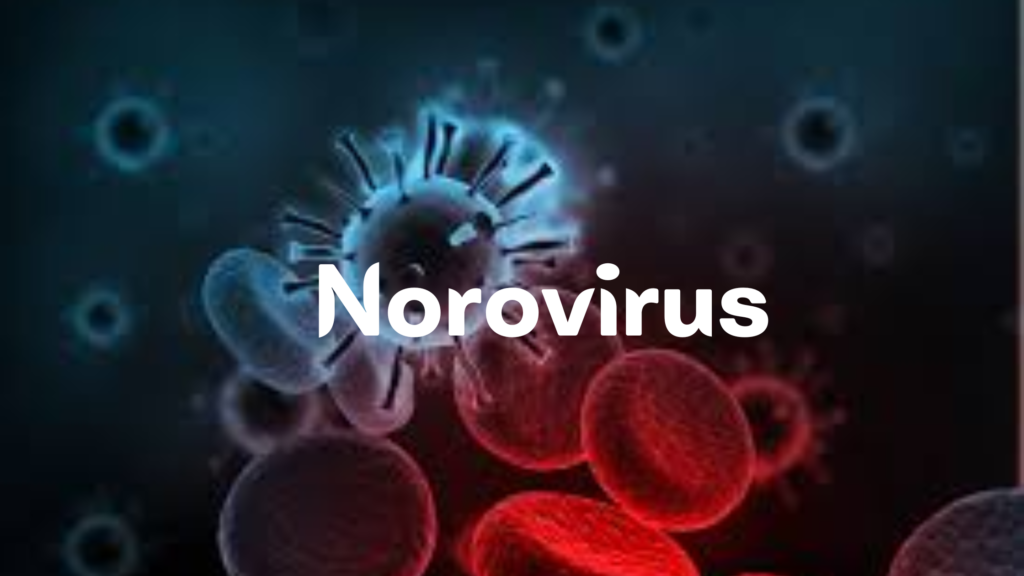What is Norovirus?
Norovirus is a highly contagious virus that causes inflammation of the stomach and intestines, leading to acute gastroenteritis. It is often called the “stomach flu,” although it’s not related to influenza (the flu virus). Norovirus is one of the most common causes of foodborne illness outbreaks worldwide.
Symptoms
Symptoms of norovirus infection usually appear 12 to 48 hours after exposure and can include:
- Nausea
- Vomiting (often sudden and projectile)
- Diarrhea (usually watery and non-bloody)
- Stomach cramps and abdominal pain
- Low-grade fever (occasionally)
- Muscle aches
- Fatigue and weakness
These symptoms usually last 1 to 3 days but can be more severe or prolonged in young children, elderly people, and those with weakened immune systems.
How is Norovirus Spread?
Norovirus is extremely contagious and spreads primarily through:
- Direct contact with an infected person (e.g., caring for someone who is sick)
- Consuming contaminated food or water (especially raw or undercooked shellfish, fresh produce, or foods handled by infected people)
- Touching contaminated surfaces or objects and then touching the mouth, nose, or eyes without washing hands
- Aerosolized particles from vomiting can contaminate the environment
The virus can survive on surfaces for days or weeks, making it very easy to catch.
Why is Norovirus so contagious?
- It takes as few as 18 viral particles to cause infection, which is a very low infectious dose.
- Infected individuals can shed billions of virus particles through vomit and feces.
- People remain contagious while symptomatic and for at least 48 hours after symptoms stop.
- The virus is resistant to many common disinfectants and can survive extreme temperatures.
Diagnosis
Norovirus is often diagnosed based on symptoms and epidemiological clues (e.g., outbreaks in a group). Laboratory tests such as PCR (polymerase chain reaction) can detect norovirus RNA in stool samples, but these tests are not commonly done outside outbreaks.
Treatment
There is no specific antiviral treatment for norovirus. Management focuses on supportive care:
- Hydration: Drink plenty of fluids (water, oral rehydration solutions) to prevent dehydration from vomiting and diarrhea.
- Rest: Allow the body to recover.
- Avoid certain medications: Anti-diarrheal drugs are generally not recommended as they can prolong infection.
- Monitor: Seek medical help if dehydration is severe, or if symptoms last more than a few days.
Prevention
Preventing norovirus infection involves good hygiene and food safety practices:
- Wash hands frequently and thoroughly with soap and water, especially after using the toilet, changing diapers, and before eating or preparing food. (Alcohol-based hand sanitizers are less effective against norovirus.)
- Clean and disinfect surfaces with a bleach-based cleaner, especially after vomiting or diarrhea episodes.
- Wash contaminated clothing and linens promptly in hot water.
- Avoid preparing food for others when sick and for at least 48 hours after symptoms stop.
- Cook shellfish thoroughly to kill the virus.
- Use safe water sources for drinking and cooking.
